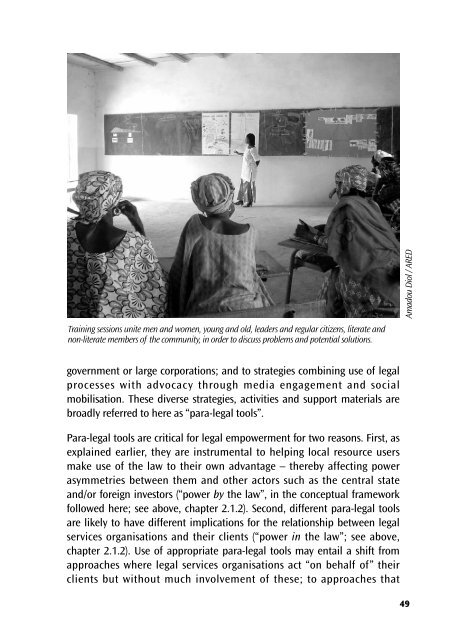Legal empowerment for local resource control
Legal empowerment for local resource control
Legal empowerment for local resource control
Create successful ePaper yourself
Turn your PDF publications into a flip-book with our unique Google optimized e-Paper software.
Training sessions unite men and women, young and old, leaders and regular citizens, literate and<br />
non-literate members of the community, in order to discuss problems and potential solutions.<br />
government or large corporations; and to strategies combining use of legal<br />
processes with advocacy through media engagement and social<br />
mobilisation. These diverse strategies, activities and support materials are<br />
broadly referred to here as “para-legal tools”.<br />
Para-legal tools are critical <strong>for</strong> legal <strong>empowerment</strong> <strong>for</strong> two reasons. First, as<br />
explained earlier, they are instrumental to helping <strong>local</strong> <strong>resource</strong> users<br />
make use of the law to their own advantage – thereby affecting power<br />
asymmetries between them and other actors such as the central state<br />
and/or <strong>for</strong>eign investors (“power by the law”, in the conceptual framework<br />
followed here; see above, chapter 2.1.2). Second, different para-legal tools<br />
are likely to have different implications <strong>for</strong> the relationship between legal<br />
services organisations and their clients (“power in the law”; see above,<br />
chapter 2.1.2). Use of appropriate para-legal tools may entail a shift from<br />
approaches where legal services organisations act “on behalf of” their<br />
clients but without much involvement of these; to approaches that<br />
Amadou Diol / ARED<br />
49

















